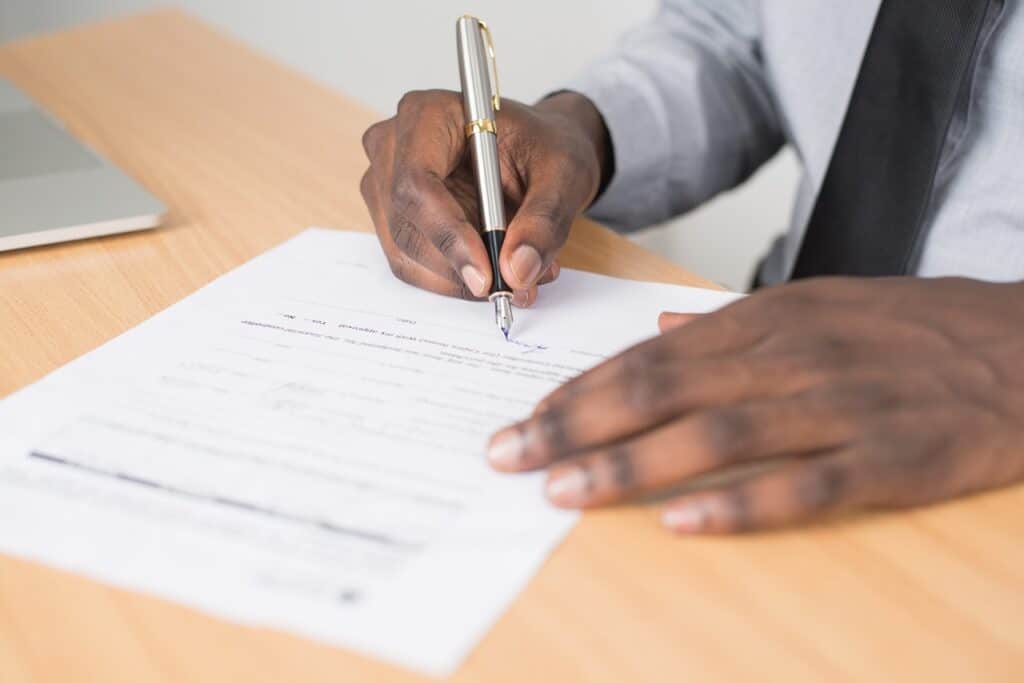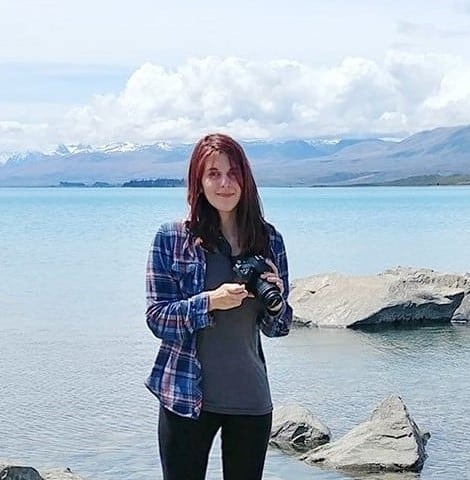Most Chase Bank branches offer notary services, which is handy if you need an official witness for signing key documents such as property deeds, car transfers, medical directives, wills, and others.

A notary public is an impartial third party whose job is to ensure that both parties are signing the documents properly and of their own free will.
You can find notaries in a variety of places—and depending on your location, you might even be able to find a Chase Bank notary for free.
Below, we’ll cover more details about Chase Bank notary services, where else to look for a notary, and how to prepare for your visit.
Contents
Does Chase Bank Offer Notary Services?
Yes, Chase Bank has a notary public.
Banks are common places to look for notaries; their employees often get certified as notaries to make it easy to handle document signings on-location.
That’s often the case at Chase Bank as well—if you’re a customer there, some locations will offer notary services to you for free.
However, be aware that Chase Bank notary services are completely up to the discretion of individual branches.
That means some branches may not have a notary public at all, others might only notarize certain types of documents, others might only have a notary during certain days or times, etc.
Because the details of Chase Bank notary services can vary so much, it’s best to call around to local branches.
Ask if they have a notary on-site, what hours they’re usually available, and whether they will notarize the specific type of document you need.
Recommended:
- Banks Open on Sunday: The List of 20 Banks Working on Sunday Near Me
- Check FAQ: How to Write a Check with Cents, Sign Over a Check, & More
- Where to Get Quarters (Loose Coins or Rolls)
Do You Have To Be A Chase Customer To Use The Free Notary Services?
Yes, you now need to be a Chase customer to use their notary services. Previously, Chase offered free notary services to both their customers and non-customers, but this policy has changed.
When using the notary service, you’ll need to provide identification, unless the notary knows you personally.
Whether or not you need an appointment can vary depending on the branch. Chase will check their system to confirm if you’re a client.
Just being an authorized user on a credit card isn’t enough to be considered a client for these services, but if you hold a Chase credit card, you are recognized as a client and can access the notary services.
Other Places to Look for Notaries

The best way to find a local notary is to simply do a quick search for “notary near [your location].”
Here are some of the most common types of businesses that may have a notary public on staff:
- Banks (if you can’t find a Chase Bank notary, check others where you’re a customer)
- Libraries
- Colleges
- Tax or accountant offices
- Real estate offices
- Law offices
- AAA branches (free for Premier members)
Usually, you need to see a notary in person, but there may be exceptions in special circumstances (e.g. during national stay-at-home orders).
Read about remote notarization services here to see whether that’s currently an option in your state.
You may also be able to find a mobile notary who will come to you.
Preparing for Your Notary Visit
Whether you’ve managed to locate a free Chase Bank notary or you’re going with another service, the process will typically be the same.
You’ll need to bring:
- The document(s) you need notarized, completed but not signed
- Everyone who is supposed to sign
- Valid photo IDs for everyone, with names exactly matching the names on the document being signed
- A method of payment, if one is required
During the notary visit, the notary public will check over the document; verify the identities of everyone present; make sure they are informed about what the document means and are signing willingly; witness the signatures; and lastly officially notarizes the document with their seal and signature. The process is usually relatively quick.
Interested in becoming a notary yourself for some side income? Depending on your location, it might not be too difficult to get certified as a notary.
More from Dollar Sanity:
- 10 Cheapest Places To Buy Land In The US
- 16 Stores Like TJ Maxx For Cheap Clothing
- What Time Does Wisely Direct Deposit Hit?

Kate is a writer and editor who runs her content and editorial businesses remotely while globetrotting as a digital nomad. So far, her laptop has accompanied her to New Zealand, Asia, and around the U.S. (mostly thanks to credit card points). Years of research and ghostwriting on personal finance led her to the FI community and co-founding DollarSanity. In addition to traveling and outdoor adventure, Kate is passionate about financial literacy, compound interest, and pristine grammar.
